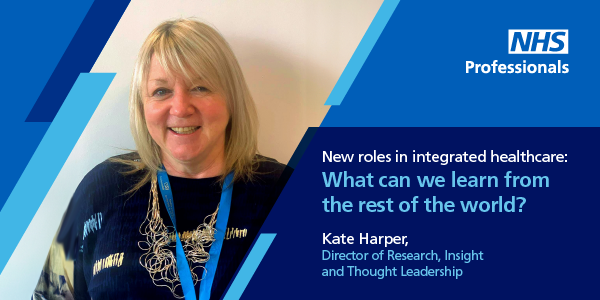What does this tell us about what we should now? There are some obvious conclusions, and work on most of these is already underway in many areas:
Break down barriers to enable people to work across ‘silos’
Passporting is obviously relevant here but so too is the removal of cultural barriers related to different ways of working and different ways of thinking; getting people to work together across settings is probably more relevant than sharing workers on a system-wide basis
Build system awareness and understanding
Cultural and operational barriers often manifest due to a lack of awareness and understanding. Awareness training – along with increased opportunity for staff to work together across the system and learn from others about the challenges in other areas - helps to create appropriate patient-centred pathways
Listen to the care-givers
Motivated by their passion to care for others, those closest to patients and delivering the service are probably the best placed to develop new solutions. They should be given a voice and given the tools and frameworks to co-design and develop new ways of working
Create new roles
We already know that we will need more care co-ordinators, more people supporting patients out in the community and a whole host of roles to support the ‘prevention’ agenda. Models around the world reveal new roles covering:
- health information exchange: managing the electronic sharing of patient data
- population health management: analysing health data and trends and developing strategies to improve outcomes and prevent illness within the population served
- behavioural health navigation: helping patients to navigate complex health systems including mental health, connecting them with appropriate resources and co-ordinating their care with other healthcare providers
- transitional care co-ordination: supporting the transition of patients between different care settings (for example, hospital and home) and ensuring they receive the necessary support and follow-up care to prevent complications and re-admissions
- telehealth co-ordination: facilitating virtual consultations and co-ordinating remote monitoring
- health coaching: working to empower patients to take an active role in the management of their own health by providing education, supporting self-management strategies and helping people to achieve their health goals
- community health: providing culturally sensitive health education to under-served communities
- community pharmacy: helping patients to manage their medication and providing medication advice
Upskill existing workers
Preparing people for cross-silo working, helping them to develop skills to extend their role and work effectively and efficiently with digital systems.
Training a new generation
As a major flexible workforce provider, NHS Professionals is fully aware of these challenges and opportunities and much of our work is now geared towards supporting individuals and systems to thrive within the integration context. Learning from the rest of the world, we know that the ability to recruit and train a new generation of workers lies at the heart of integrated healthcare transformation.
Our Academy, for example, is developing appropriate training and support for flexible staff to ensure they remain ‘work ready’ in the new world of integrated care. In addition we are actively exploring how we can use flexible deployment vehicles (such as shared banks and our ‘National Bank’) to mobilise staff more effectively on a system-wide basis.
This also means developing a new cadre of worker able to work in all parts of the healthcare system, and using the knowledge they gain in doing so to lead the change agenda. We have the capacity to use these resources to develop training pathways for new roles and system-wide opportunities. Ultimately, we are responding to the recommendations in the Long-Term Workforce Plan. These suggest the workforce needs to be upskilled and cross-skilled in a way that supports NHS reform, and we are developing flexible workers accordingly. In this way we see our flexible workers playing a key strategic role in healthcare integration in the future.
